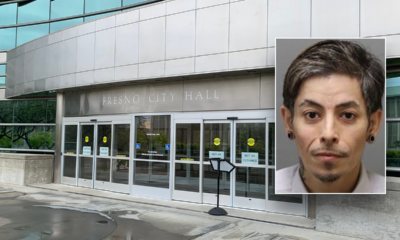The Port of Nevada™, a 224-acre, inland port operation and intermodal ramp in Northern Nevada, owned and developed by Industrial Realty Group, LLC (IRG), will offer intermodal service for imports and exports between Fernley and the Port of Oakland, US. This venture was the result of their collaboration with Union Pacific Railroad, the CMA CGM Group, and the Port of Oakland.
“Direct rail access between Reno and the West Coast significantly increases the amount of cargo freight that can be shipped,” said Stuart Lichter, President of the Port of Nevada and IRG. “This collaborative venture will provide our clients with a more efficient, reliable, and environmentally sensitive way to transport goods.”
The Port of Nevada offers a full-service rail facility on the property which is connected to Union Pacific’s network. Rail operations include bulk commodity and intermodal transloading, and storage of multiple commodities. In addition, there are multiple opportunities for building suits and on-site storage.
The direct rail access to the port will create many opportunities for savings, efficiencies, supply chain options, and sustainability for Port of Nevada customers.
The CMA CGM Group, a global provider of sea, land, air, and logistics solutions, was Port of Nevada’s exclusive ocean carrier partner through 2024. This collaboration will provide worldwide connectivity to Asia and Europe.
With the businesses experiencing the impact of supply chain challenges in recent years and consistently with traversing the frequently weather or traffic impacted Interstate 80 corridor, the draw to rail becomes more attractive.
Clients utilising rail can expect to decrease their carbon footprint and become less impacted by road conditions, trucking regulations, and carbon emissions. According to Union Pacific, transporting by rail is also very efficient and cost-effective; approximately one ton of rail cargo can be transported nearly 400 miles on just one gallon of diesel fuel. In addition, trains account for only 2% of all transportation-relation greenhouse gas emissions, while medium-duty and heavy-duty trucks account for nearly 25%.
Further support from Reno’s local economic development experts at Northern Nevada Development Authority (NNDA) and the Economic Development Authority of Western Nevada (EDAWN), provide companies with the tools they need to thrive.
“This project is a very unique opportunity for those looking to expand in the Reno market,” said Taylor Adams, EDAWN CEO. “The coastal connectivity IRG is providing is something companies need in Western Nevada, and we will do all we can to support the project’s continued growth throughout the region.”
“We are very excited to support the IRG inland port project,” said Jeff Sutich, Executive Director of the NNDA. “As a federally designated Tech Hub, focused on onshoring businesses to Nevada, this site is in a prime position to support advanced manufacturing companies that will be expanding to the State.”
Click here for free registration to Dry Bulk
Read the article online at: https://www.drybulkmagazine.com/ports-terminals/18062024/port-of-nevada-adds-rail-service/













































